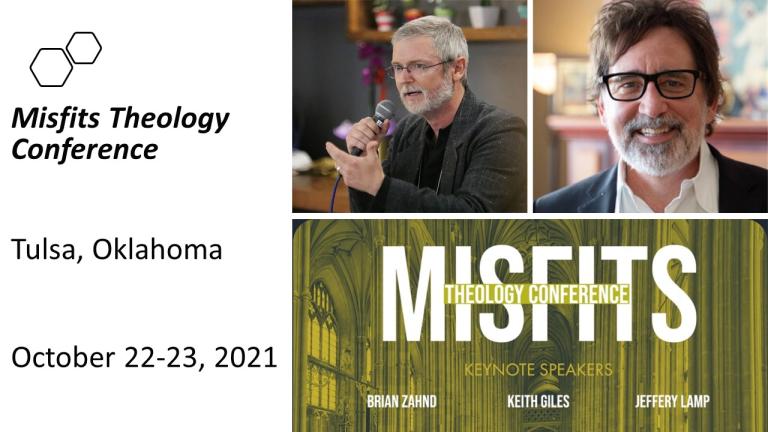
There’s a fascinating phenomenon I like to call “Dual Discovery” which is the tendency for different people arriving at the same conclusions even though they are hundreds or even thousands of miles apart, and have no collaboration between them.
For example:
In the 17th century, there were independent formulations of Calculus by Issac Newton, Godfrey W. Leibniz, and others.
In the 18th century, Oxygen was discovered by three different people at around the same time: Carl Wilhelm Shield and Joseph Priestley, and Antoine Lavoisier.
In the 19th century, the Theory of Evolution was independently advanced by Charles Darwin and Alfred Russel Wallace
The blast furnace was independently invented in China, Europe and Africa at the same time.
The crossbow was invented simultaneously in China, Greece, Africa, Northern Canada and the Baltic states.
Magnetism was discovered independently in Greece, China, and India at the same time.
Color Photography was invented at the same time by both Gabriel Lippmann and Louis Ducos Du Hauron.
Logarithms were invented by Jost Bürgi, John Napier, and Henry Briggs at the same time.
There were 4 independent discoveries of sunspots in 1611 by Johann Goldsmid (known as Johannes Fabricius) of Holland, Galileo Galilei of Italy, Christopher Scheiner of Germany, and Thomas Herriot of England.
There were at least 6 different inventors of the thermometer, 9 different inventors of the telescope.
Typewriters were invented simultaneously in the UK and USA.
The steamboat was invented – at the same time – by 6 different people independently.
What’s going on here? How can we make sense of why this sort of thing continues to happen?
One idea comes from the great Carl Jung’s concept of the “collective unconscious”, which suggests that we all share access to the same ideas through our unconscious mind….something that Hindus are already quite familiar with.
Plato, of course, also had the idea of a realm of perfect forms where every physical object ultimately originated from. In other words, before there was a chair, or a table, the idea of a chair and a table already existed in this other reality of perfect forms. Whoever created the chair did so because they were somehow able to access this realm and “see” such a thing in their minds and then duplicating that perfect pattern here in this physical reality.
In more recent days, writers like Alan Moore, Warren Ellis, and Grant Morrison have proposed the “Idea Space” concept which takes cues from Jung and Plato to suggest that there is another dimensional reality where all ideas exist. Only those creative people – whether in mathematics, or science, or literature, or art – who have their antennae up are lucky enough to capture these ideas as they float through the Idea Space. This is one explanation for why several different people, at different points on the map, can all “discover” the same idea at the same time: Their tuning forks were extended at the right time to resonate with the frequency of the idea. At this point, the race is on to be the first one to publish the idea, or communicate it, or patent it, or lay claim to the discovery before someone else beats you to the punch.
I’ve had this happen to me on more than one occasion, to be honest. One of the first times was when I was a teenager. I had come up with an idea for a story where a CIA agent is given plastic surgery to pose as a wealthy arms dealer who our government suspects is in danger from nefarious sources. Before the two can properly trade places, the arms dealer is assassinated. Now, the agent [who has taken on the identity of the deceased] must try to discover who killed the man, and why. So, one day I’m at the grocery store and I come across a paperback book on the rack next to the magazines. As I read the back cover I realize with horror that the story is EXACTLY my idea. Someone had beat me to the punch.
The second time this happened was when my Hard Video graphic novel plot ended up in another comic, and that comic became the film “Surrogates” with Bruce Willis [which sucked]. But, the plot, and the twist in the story, were EXACTLY the same plot I had for my book. Even the method used by the hero to resolve the problem and defeat the enemy was the same as in my story. So, either someone stole my idea [and that is one possibility], or I was the victim of this Idea Space theory where someone else caught the same idea but managed to publish it before I could.
So, what does this all mean? Is there a collective unconscious or realm of ideal forms or an Idea Space where all ideas are born? Are some of us better at sensing or capturing these ideas as they float on by? Why don’t all ideas appear at once? Why are certain ideas introduced at specific times in history? Is there some guiding force doling out ideas and discoveries to humanity on a cosmic timetable?
These sorts of questions really make me wonder. Who knows if there is such a place or dimension where ideas are formed? Who knows if this is why different people throughout history have all made similar discoveries at the very same time?
To be honest, all of this stimulates my sense of awe and wonder. This world, our universe, all of reality, is more mysterious and fascinating than we could possibly imagine.
The answers mean less to me than the questions themselves.
In our world today, the emphasis seems to always be on the answers. We must KNOW. We must become certain. Expertise is valued far higher than the gift of wonder.
But, I’m discovering the beauty of ignorance. I am becoming obsessed with all that I do not know.
As my friend Omar Salom recently pointed out to me: “Certainty is a way to stop thinking and stop living.”
I think he’s on to something.
Perhaps we are nearer to God when we sit with our questions. Maybe being “Born Again” simply means a return to a place of childlike wonder and a celebration of our vast ignorance about Life, the Universe, and everything else.
Abraham Joshua Herschel said it best: “We are closer to God when we are asking questions than when we think we have the answers.”
So, for now, I’m going to revel in my unknowing. I’m going to enjoy the splendor of asking questions without worrying about what those answers might be.
The truth is, there is more to know than I will ever know. In fact, I will never, ever fully know anything about anything on this side of eternity.
Maybe we need to return to a place where we can become surprised at the world and the universe around us again?
There is a simple joy to be found in asking “Why?” without needing to have everything all figured out.
Now, there’s an idea.

Want a deeper dive on this conversation? Check out my new podcast, IMAGINARY LINES with my co-host Darrell Epp. In our latest episode we talk all about Idea Space, Creative Unconsciousness, and a lot more. Check it out HERE>
**

Do you ever feel like a Misfit? This is the conference for you! Join me along with Brian Zahnd and many others for a two-day gathering in Tulsa, OK. Registration is NOW OPEN>
Keith Giles is the author of the best-selling “Jesus Un” series of books available on Kindle and Paperback at Amazon HERE>
He’s also the co-host of The Heretic Happy Hour podcast, the Peace Catalyst Podcast, and the new Imaginary Lines podcast.
He lives in El Paso, TX with his wife, Wendy.













